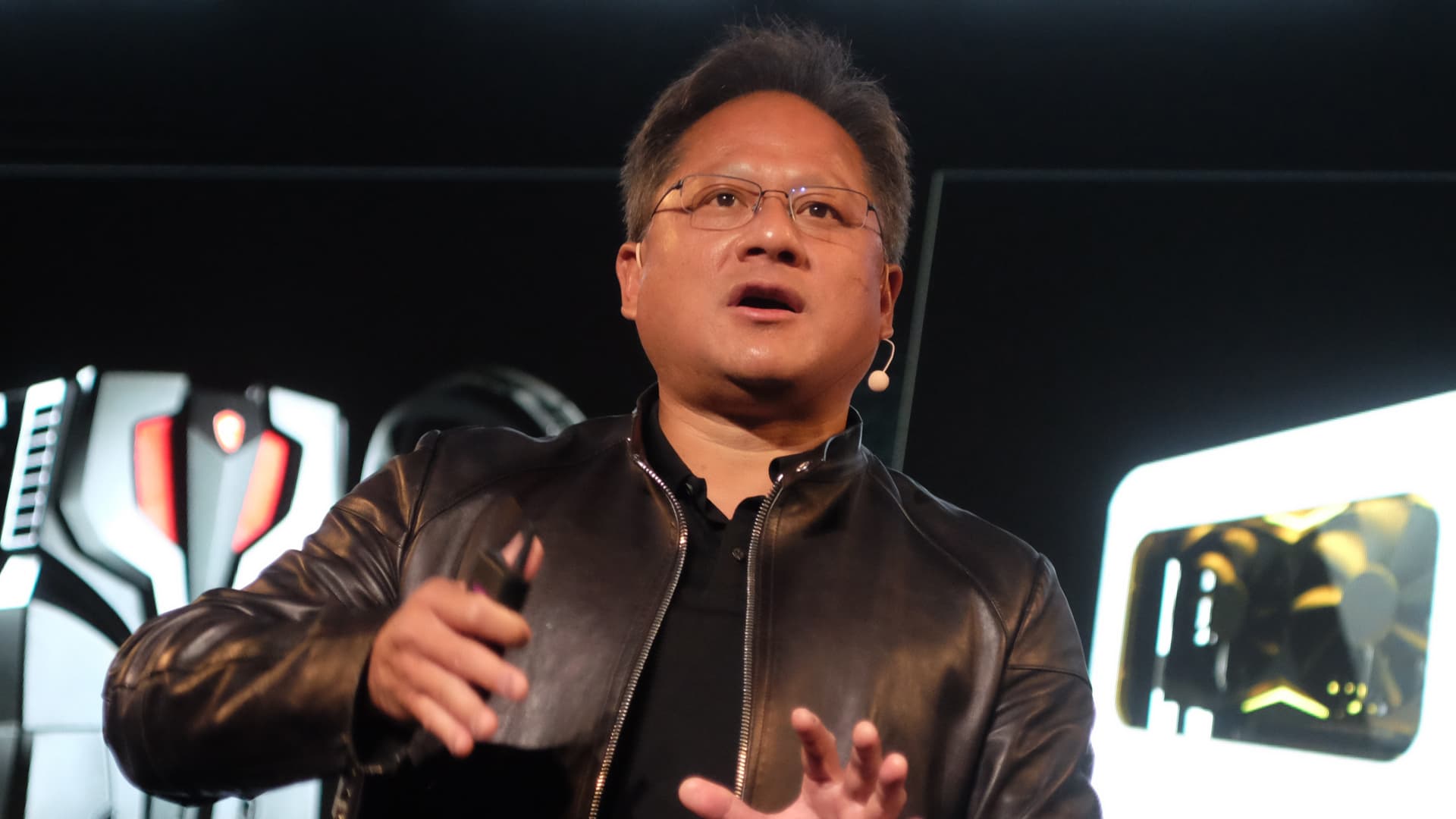
Jensen Huang, president and CEO of Nvidia, speaks during the Computex Show in Taipei on May 30, 2017.
SAM YEH | AFP | Getty Images
Nvidia’s powerful semiconductors have taken on particular importance as their capacity to fuel artificial intelligence has become increasingly sought-after.
But their unique capacity is also what’s made China hawks in the U.S. fearful about what it could mean for them to get into the wrong hands, where it could be used to accelerate the spread of non-democratic ideas or develop autonomous weapons.
“If the democratic side is not in the lead on the technology, and authoritarians get ahead, we put the whole of democracy and human rights at risk,” Eileen Donahoe, a former U.S. ambassador to the U.N. Human Rights Council and now executive director of Stanford University’s Global Digital Policy Incubator, told NBC in a recent interview.
With U.S. AI executives warning the government that China is not far behind in its development of the transformative technology, U.S. policymakers believe there’s deep urgency in taking steps to stay ahead.
That’s why the Commerce Department is reportedly considering new limits on the export of such chips to China, The Wall Street Journal reported on Tuesday. Nvidia had already created a version of the A100, its popular AI chip, that it could sell to the Chinese market. The A800 was made to stay within performance parameters previously outlined by the Commerce Department.
But the new limits reportedly being considered by the Biden administration would restrict even those sales without a license.
Such a move would continue the ongoing standoff between the U.S. and Chinese governments on technology sales between the two countries. The Chinese government in May barred “critical information infrastructure” from buying products from U.S. memory chipmaker Micron, saying the company poses a “major security risk.” The U.S. Commerce Department at the time said they “firmly oppose restrictions that have no basis in fact.”
U.S. limitations on the sale of chips with AI capacity to China would make it harder for China to keep up with the pace of development of the sector by U.S. companies like Google and Microsoft-backed OpenAI. While Chinese companies may have some additional advanced chips saved up or resort to slower semiconductors, further limits on high-speed chips could limit their agility in the AI race.
American executives have warned the U.S. government that AI produced without the proper guardrails can be used in nefarious ways. AI models can be designed in ways that perpetuate discrimination in contexts including law enforcement actions, housing and loan approvals and more, for example. But they can also be used to mass produce convincing propaganda or even to develop autonomous weapons.
The Commerce Department did not immediately respond to CNBC’s request for comment on the Journal report and Nvidia declined to comment.
-CNBC’s Kristina Partsinevelos contributed to this report.
WATCH: Can China’s ChatGPT clones give it an edge over the U.S. in an A.I. arms race?









